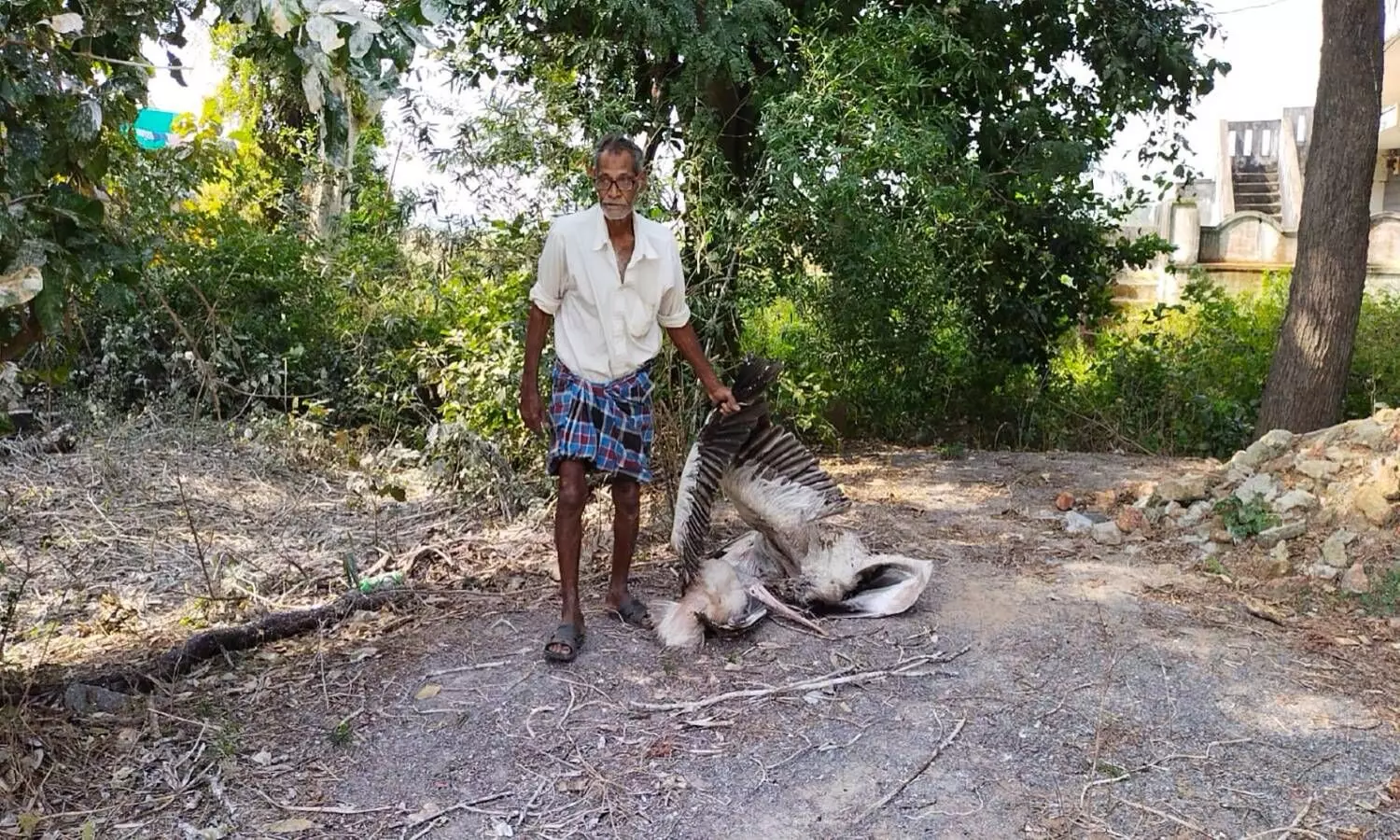Over 120 pelicans found dead in Srikakulam; parasitic infection suspected
Forest officials said the migratory birds such as painted storks, pelicans, and a few other birds travel thousands of kilometers from Siberia, Germany, Australia, and Hungary to sanctuaries in the Srikakulam district.
By Newsmeter Network
Srikakulam: More than 100 to 120 pelicans were found dead at the Telineelapuram nestling area in the Srikakulam district. The laboratory report confirmed that the deaths of pelicans were due to parasitic infection and not flu or suspected poison.
Forest officials said the migratory birds such as painted storks, pelicans, and a few other birds travel thousands of kilometers from Siberia, Germany, Australia, and Hungary to sanctuaries in the Srikakulam district.
The migration happens mostly in October. The winged visitors stay in the sanctuary for four to six months during which they lay eggs and hatch them. They leave the sanctuary between March to May along with their newborn babies.
Forest Range Officer, Tekkali, PV Sastry said some pelicans were found lifeless at Telineelapuram due to unknown reasons. "We have requested the Assistant Director of Animal Disease Diagnostic Laboratory (ADDL), Srikakulam to conduct an autopsy on the dead pelicans to ascertain the specific reasons for the death," he said.
In the postmortem report, AD of ADDL, Dr. P Mohinikumari mentioned that they have found the presence of huge number contracaecum worms in Gizzard. Therefore, the death of the birds might have been caused due to parasitic and pasteurella infection.
The laboratory reports negated the rumor that influenza caused the death of the pelicans, which is a relief.
On being asked how the migratory birds developed the infection, PV Sastry said they feed on the fish found in the water body spread of over 500 acres.
"The pelican bird will hold a big fish (5kg fish) and swallow it. We have found the worms in the fish. Same worms were found in the dead pelicans. We will ask the fisheries department and the authorities of Indira Gandhi Zoological Park (IGZP), Vizag to find out the reason being the worms in the fish and to find some solutions to save the winged visitors," he added.
Joint Director of Fisheries department, PV Srinivasa Rao said normally the birds eat live fish only. "We need to examine the reasons behind the presence of worms in the fish," he said.
Forest department officials said that there is a need to take urgent measures to save the winged visitors. Deworming of birds is not the solution as some of them lay eggs and some others hatch, they added.
It may be recalled that the migratory birds (Asian Open Bill Storks and a few others) were found dead at Chellamnaiduvalasa under Seethanagaram Mandal in Vizianagaram district due to the suspected pesticide poisoning in 2020. Some people in the village launched a campaign to mitigate the usage of pesticides in the farm fields to protect the birds.